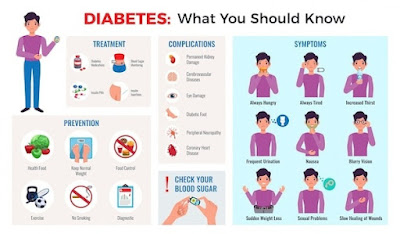Chronic Kidney Disease (CKD) progresses through five stages, each characterized by specific symptoms and levels of kidney function. It's important to note that symptoms may vary among individuals, and not everyone will experience the same symptoms or progress through all stages. Here's an overview of the five stages of CKD and their associated symptoms:
Stage 1: Kidney Damage with Normal or High Glomerular Filtration Rate (GFR)
- Symptoms: Often asymptomatic; kidney damage may be detected through laboratory tests.
- Signs: Proteinuria (protein in urine) and/or hematuria (blood in urine) may be present.
Stage 2: Kidney Damage with Mild Decrease in GFR
- Symptoms: Usually asymptomatic; some individuals may experience fatigue, mild swelling, or changes in urination patterns.
- Signs: GFR is moderately reduced (60-89 mL/min/1.73m²); proteinuria and hematuria may persist or worsen.
Stage 3: Moderate Decrease in GFR
- Symptoms: Symptoms may become more noticeable, including fatigue, swelling (edema) in the legs, ankles, or feet, changes in urine output (increased or decreased), foamy urine (due to proteinuria), and difficulty concentrating.
- Signs: GFR is significantly reduced (30-59 mL/min/1.73m²); electrolyte imbalances and anemia may develop.
Stage 4: Severe Decrease in GFR
- Symptoms: Symptoms become more pronounced and may include severe fatigue, persistent swelling, shortness of breath, nausea, vomiting, itching, muscle cramps, difficulty sleeping, and changes in appetite.
- Signs: GFR is severely reduced (15-29 mL/min/1.73m²); metabolic waste products accumulate in the blood, leading to uremia (toxicity due to kidney failure).
Stage 5: Kidney Failure (End-Stage Renal Disease, ESRD)
- Symptoms: Symptoms worsen, and complications become more severe. Symptoms may include extreme fatigue, profound swelling (especially in the legs and face), shortness of breath, difficulty breathing (due to fluid accumulation in the lungs), nausea, vomiting, loss of appetite, metallic taste in the mouth, itching (due to accumulation of toxins), muscle cramps, and neurological symptoms (such as confusion and difficulty concentrating).
- Signs: GFR is severely reduced (<15 mL/min/1.73m²); individuals with ESRD require renal replacement therapy (dialysis or kidney transplantation) to survive.
Conclusion
The progression of CKD through its stages is gradual, and symptoms may develop slowly over time. Early detection and management of CKD are essential for slowing the progression of the disease and reducing the risk of complications. If you experience any symptoms suggestive of kidney disease or have risk factors for CKD, it's important to consult a healthcare professional for evaluation and appropriate management.









